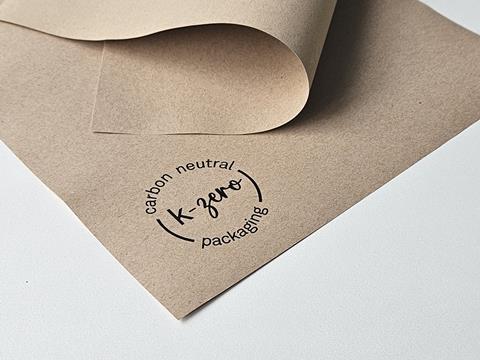
LC Paper is launching its machine-glazed K-Zero kraft paper range – reportedly manufactured in a CO2-neutral process – for use in the food and retail industries.
Apparently, the paper is produced using only renewable resources – namely wind, photovoltaic, and hydroelectric energy generation, and heat from biomass. Any emissions found in the supplier’s chemical processes or the buying of recycled raw materials are apparently offset through reforestation projects in Spain.
A traceability database is said to keep track of each paper reel’s emissions footprint, allowing for the validation of energy sources and the confirmation of both raw materials use and offsets made in compliance with the ISO 14.067 standard.
Available in three strength levels and weights between 25 gsm and 70 gsm, the K-Zero range aims to balance performance and cost to the benefit of its customers. It also offers alternatives in brown or white colours, partially or 100% recycled, and with or without wet strength properties.
LC Paper intends for its K-Zero range to be used in auxiliary packaging elements, paper mats – especially flat bags and Self-Opening-Square (SOS) packs – and single-use tablemats. All products made using these materials can be marketed as ‘carbon-neutral packaging’ and feature K-Zero branding, the company says.
Machine-glazed kraft paper has also been used by Billerud to wrap toilet and kitchen paper rolls. The solution is thought to reduce carbon emissions and match the recyclability, biodegradability, and strength of polyethylene alternatives.
Also, Mondi has developed recyclable kraft paper bags for Holz-Bauer’s wooden pellets and hopes to cut unnecessary plastic from packaging in the wood sector.
If you liked this article, you might also enjoy:
The L’Oréal approach to packaging sustainability
What steps is Apple taking to make its packaging more sustainable?
How did Brazil achieve its 100% aluminium can recycling rate – and can it be replicated in the EU?
Experts have their say on the EU’s Packaging and Packaging Waste Directive revisions














No comments yet